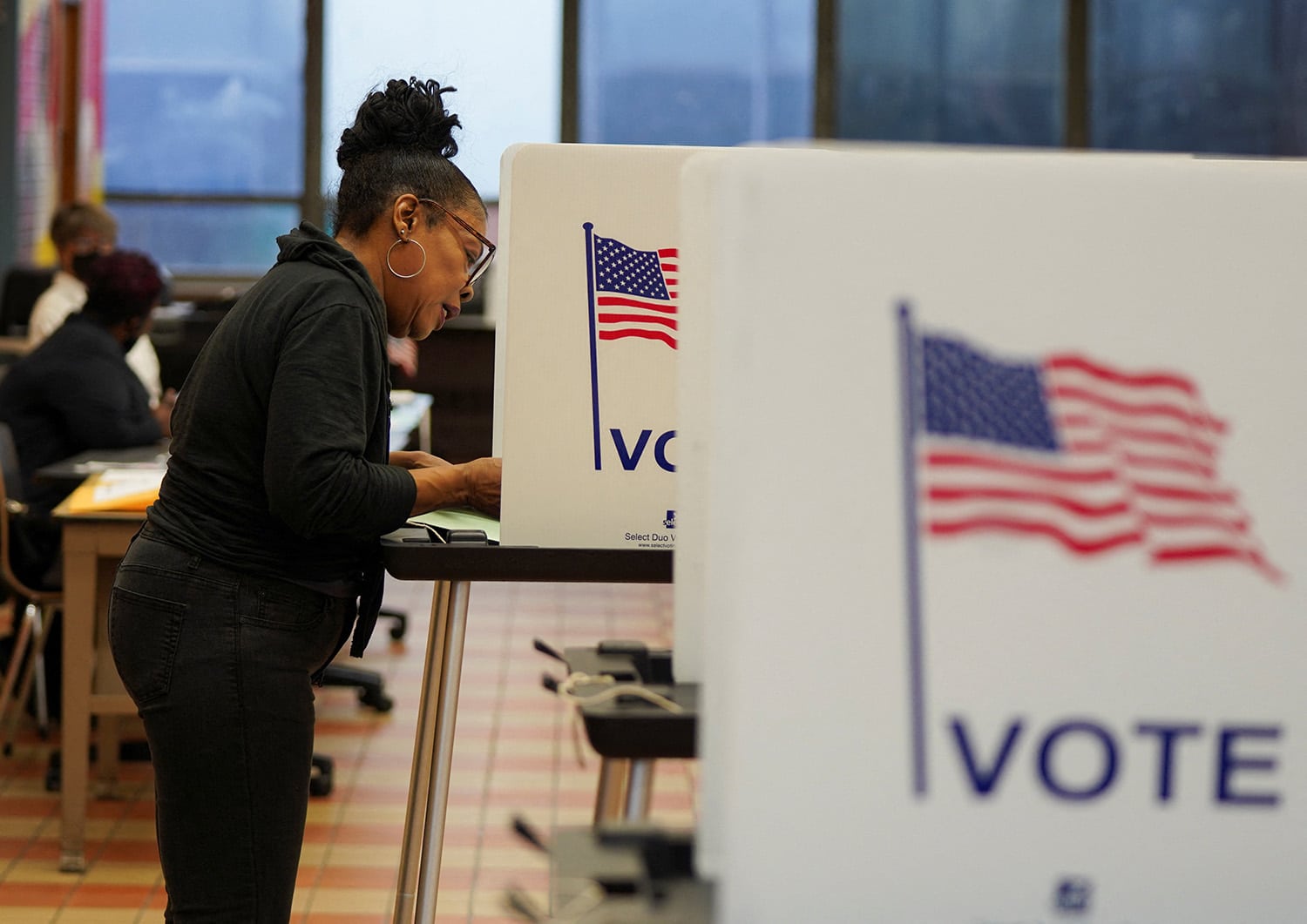WASHINGTON (OSV News) — Super Tuesday, the day during the U.S. presidential primary cycle when the largest number of states hold their elections on the same day, is scheduled for March 5. Recent polls indicate little room for surprises, but there are indications voters may still send a message to the candidates leading both the Republican and Democratic primaries.
Fifteen states, as well as Washington, D.C., and American Samoa, will hold primary elections on March 5.
Former President Donald Trump goes into Super Tuesday having won South Carolina’s Republican primary Feb. 24, defeating former U.N. Ambassador Nikki Haley, also a former Palmetto State governor, in her home state. Haley overperformed some polling in that state and vowed to stay in the contest, pledging to compete in the Super Tuesday contests.
Trump also bested Haley more decisively in Michigan’s Feb. 27 primary, and appears poised to win a third GOP nomination to the White House and a rematch election with President Joe Biden.
In the Democratic primary, Biden faces no serious challenge from either Dean Phillips or Marianne Williamson, and cruised to 96% of the vote in South Carolina Feb. 3. However, he only won the Michigan primary with 81% of the vote as 13% of Democratic voters (approximately 100,000) voted “uncommitted,” securing two delegates to protest Biden’s nomination at the convention. Arab Americans in particular wanted to send a message to Biden over U.S. support of Israel’s war on Hamas, which has led to 30,000 reported Palestinian deaths (a majority being civilians) in the Gaza Strip. Biden beat Trump in Michigan by just 154,000 votes in 2020.
A likely Trump-Biden rematch
In a hypothetical Trump-Biden rematch, national polling shows the candidates within tight margins of each other. A Feb. 21 Marquette Law School Poll national survey found Trump leading Biden 51% to 49% among registered voters.
Charles Franklin, director of the Jesuit law school’s poll, told OSV News that “we’re seeing Trump consolidating support, but with still anywhere from 25 to 40% (of) Republican primary voters voting for someone else, mostly, virtually all Haley at this point.”
Although Haley does not appear to have a path to the Republican nomination, the same survey found that if Haley was the Republican nominee against Biden in the general election, she leads him among registered voters 58%-42%.
But, Franklin said, “it’s a decreasing group of Republicans who are unsympathetic to Trump.”
“It’s a dominant position,” Franklin said. “But it’s not one without some people looking at an alternative to Trump.”
Some of those Republicans seeking an alternative to Trump may choose not to vote for president in November if they don’t choose to vote for Biden, which could reduce Trump’s margins, Franklin said.
However, he noted similar numbers of Democrats may behave similarly, as voters have shown concern for issues including Biden’s age.
In fact, Washington state’s largest labor union, 50,000 members of the United Food and Commercial Workers, endorsed “uncommitted” over Biden, citing concerns about his electability. The state votes the week after Super Tuesday, March 12.
Other choices when voting
“A lot of people in both parties wish they had other choices. So sometime in the fall, people will wake up and realize these are the choices they have,” Franklin said. “And that will make them think about whether or not to crossover in a slightly different light.”
Even if voters are unenthused with their party’s candidate, Franklin said, it does not necessarily mean they would be “willing to vote for the guy from the other side” in an increasingly partisan climate.
“Republicans are incredibly negative to Joe Biden, even if they’re negative to Donald Trump,” he said. “And it certainly goes the other way. A lot of these voters that are Democratic voters that are unhappy with Biden right now are among the most negative to Trump.”
Franklin said, “That’s where the third party vote or possibly not voting at all or skipping the top of the ballot becomes a real issue for the parties. And we don’t really have a good sense of that until we’re closer to the fall.”





